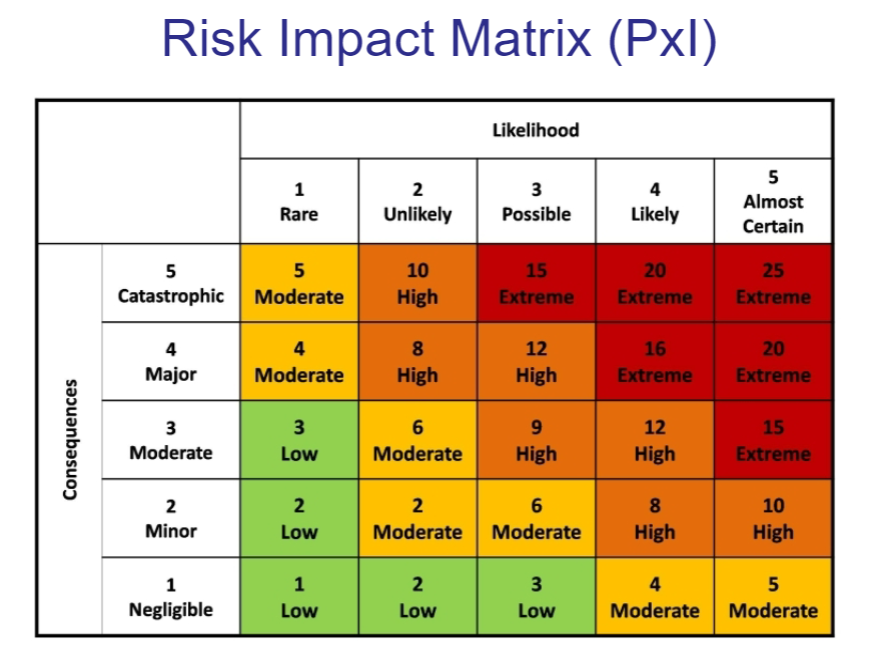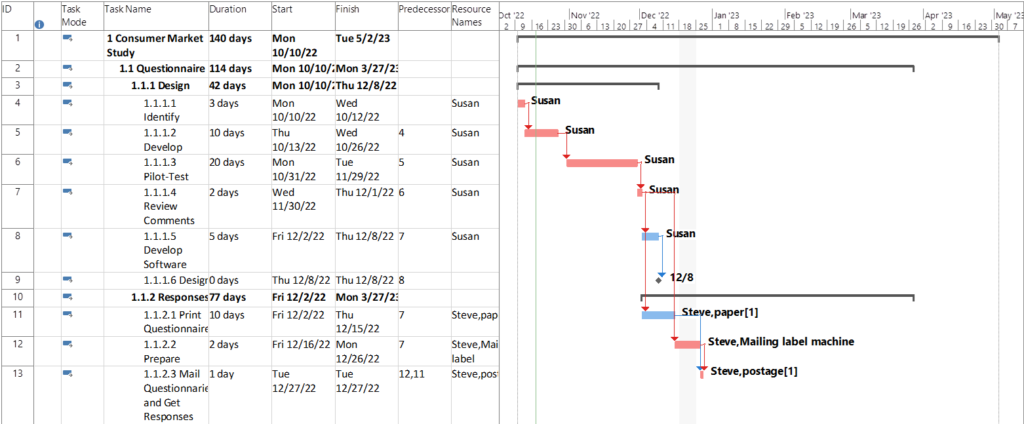Class
I will take many things I learn in this class with me after I graduate. The most important things so far for me have been conflict management and work breakdown structures (WBS).

Subconsciously I have always been aware of different ways to resolve a conflict but this class put those feelings into definitions. This lesson also taught me the ideal method for each situation. The whole of the module dealt with working in a team, which is something I’ll be doing for the rest of my life. In this society effective communication is the single most effective and important skill to have. I have already found myself analyzing conflicts in my daily life and debating which resolution method I should implement.

Looking back now I can see how everything builds on itself. Before we can assign resources and schedule a project we must first effectively design the project. The WBS details every little task that must be done to complete a project. To express the necessity of an effective WBS we did a bridge building activity in class. Project teams were instructed to create a WBS for constructing a simple bridge out of tape and straws. After each team had written instructions for their bridge we were instructed to trade papers and construct a different team’s bridge following only their WBS. Not every design choice agreed upon during discussion had been written so my team and I’s bridge turned out wildly different than we had initially planned. Detailing a project to this level not only makes everything clear but also makes it significantly easier to manage.

Despite some simple math errors in the image above this simple matrix is incredibly useful. Quantifying risks is invaluable. We have an idea of risks and their likelihood/consequences in our mind separately but it’s hard to think about the overall impact at once. This matrix streamlines that metric and allows a company to know which risks it needs to focus on mitigating.
Project
These are links to the documents created for this class’s project and can only be viewed by members of the UM-system.
EMAN 3320 is by far the coolest class I’ve had at this school and this project opportunity is why. The new Rock Island Trail (similar in history and design to the Katy Trail) will pass right under the village of Freeburg, MO. My team and I have been tasked with designing a trailhead for Freeburg that will bring people to the village. We are designing something for the real world that will actually be built.
Each deliverable in this project mimics what would be required in the working world. The requirements document opened my eyes to how exactly the vision for the project gets put into writing for the design. After meeting with the mayor of Freeburg, my team and I organized his dream for the trailhead into a detailed list of requirements. Not only is this directly applicable to project management roles in future classes and jobs, but these organizational techniques can also be applied to any personal projects I take on.
The design document made me realize just how much detail needs to go into every little part of the whole. Realistically this single document would be able to answer every question the contractors had during construction. My team and I, this being the first project we’ve ever managed and the fact that we are driven by grades rather than reputation and professionalism likely missed several vital details that would allow the product to stray greatly from what we envisioned. Outside of project management I realize that when delegating or asking anyone to do something for me I need to be incredibly specific so that there is minimal room for miscommunication.
The budget and scheduling document took the most time but it was the most rewarding of the bunch. After spending all this time imagining and speculating we got to lay down some numbers. I’ve always enjoyed the finance side of things. It became tedious however when I realized just how specific we would need to be to get an accurate project cost estimate. In the end we rushed a few things for the sake of convenience and I learned how difficult budgeting a construction project can be.
The final plan brought everything together. All of our hard work paid off. The requirement for this deliverable was simply compiling the last three documents in an organized fashion and adding a few paragraphs. Because our team had corrected our other documents as we received feedback this deliverable went rather quickly. It reinforced the lesson of hard work pays off. At least hard work in the beginning.
MSP Lessons

Learning the ins and outs of Microsoft Project feels like one of the most important (and fun) things I’ve done this semester. Going through these fake scenarios helps me learn the process effectively and allows me to envision myself doing this in the working world. Doing this by hand at first was a nightmare and I’m glad I got to see the amount of organization good project software could add to management.

As the semester has progressed and I’ve learned more and more about the requirements of project management Microsoft Project has risen to match. Aside from the basic automated schedules and Gantt charts, we were taught the vastness of the software’s capabilities. We first learned to calculate the analytical budgeting values depicted above by hand. Then for a homework assignment I set up the functions in Excel. Finally we learned that Microsoft Project had them already built in. If I pursue a career in project management knowing how to utilize these additional metrics will allow me to manage my projects more effectively.

The future is not certain. We cannot predict how long a task will take much like we can’t predict the weather. However, we can get a pretty good estimate through past data and statistics. Using the worst and best possible outcomes in terms of task durations we can get a more accurate project duration varying by confidence level. Unfortunately, the expected value function is not built in and takes a bit of set up.